Advil safety and tolerability
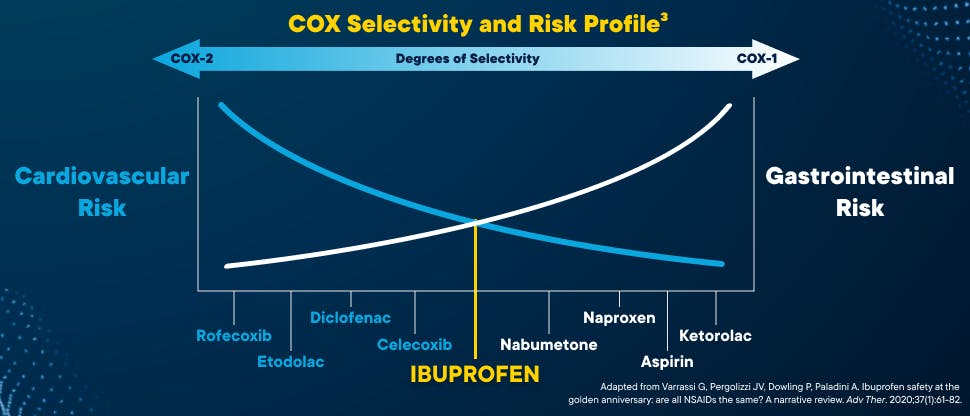
Not all NSAIDs are the same: Advil has a balanced selectivity profile targeting COX 1 and COX 2 enzymes3
Greater balance of selectivity reduces risk
The medicine in Advil is one of the most centrally balanced between COX 1 and COX 2 selectivity among NSAIDs,3 supporting its good tolerability by patients.
Pharmacokinetic data
Advil: Rapidly metabolized to minimize systemic exposure2
The medicine in Advil is highly protein bound and rapidly metabolized, minimizing systemic exposure:
- Rapidly absorbed and distributed throughout the body
- Rapid onset of efficacy—less than 30 minutes
- Results in lower blood concentration levels while delivering relief
Advil has 35+ years of clinical studies & real-world evidence confirming its safety profile
COX inhibitors, like NSAIDs, are widely used due to their anti-inflammatory and antipyretic properties and are indicated for mild pain by the WHO.7
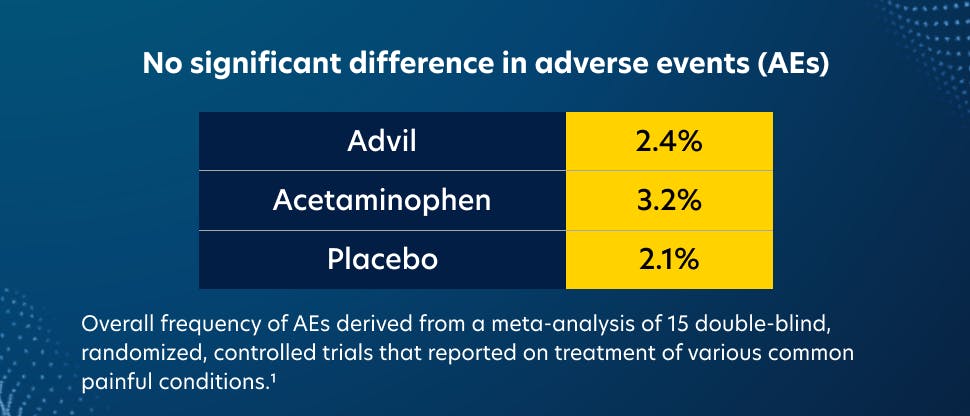
Favorable overall safety profile
Results of a meta-analysis of 15 double-blind, randomized, placebo-controlled clinical studies:
No significant differences in AEs among or between ibuprofen, acetaminophen, or placebo-treated patients1,4*
- Clinical studies show no significant differences were observed in overall frequency of AEs between the medicine in Advil and Tylenol, both of which had rates similar to placebo
- AEs with OTC doses of Advil were generally present at similar rates as placebo†
Additionally, unlike prescription doses of ibuprofen, OTC doses of Advil, when taken as directed, have a low risk for occurrence of AEs across all body systems2
*When used as directed.†AE rates increased with higher dosing similar to Rx.
Recommend Advil—proven effective pain relief with a favorable safety profile.
Advil has 35+ years of clinical studies & real-world evidence confirming its safety profile.
View the benefits
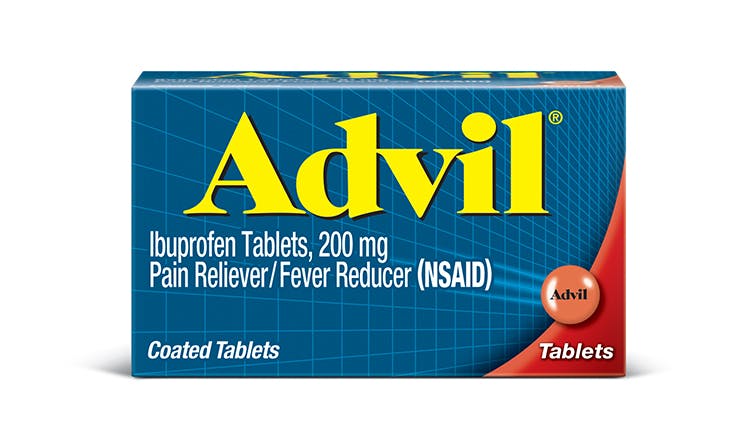
Advil Tablets
Experts and patients have trusted Advil for safe and effective pain relief for 35+ years.
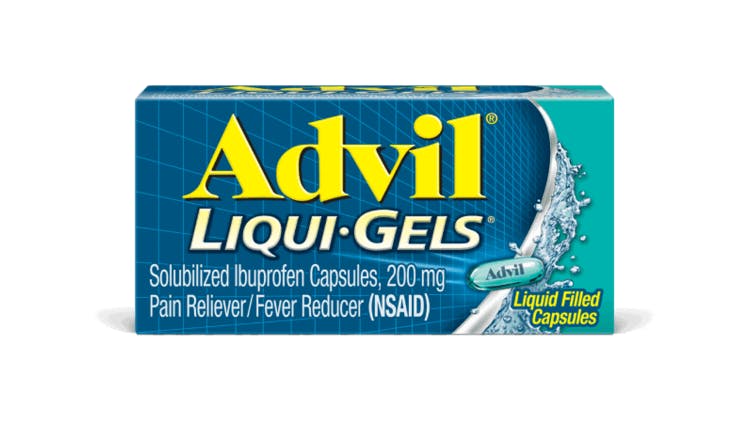
Advil Liqui-Gels
Fast-acting formulation to relieve acute patient pain.
Explore related content

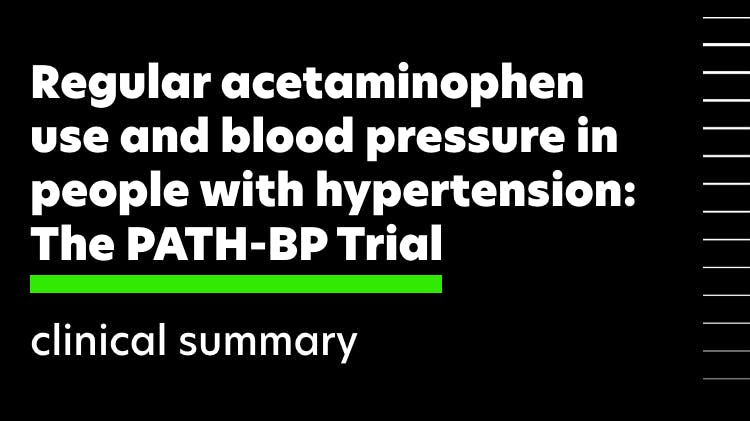
An important clinical study
This double-blind, placebo-controlled, crossover study examined the effects of regular acetaminophen dosing on blood pressure in individuals with hypertension.

Patient samples for your practice
Help patients get clinically proven, safe pain relief with free samples.





